The Ultimate Marketing Due Diligence Checklist for Acquisitions
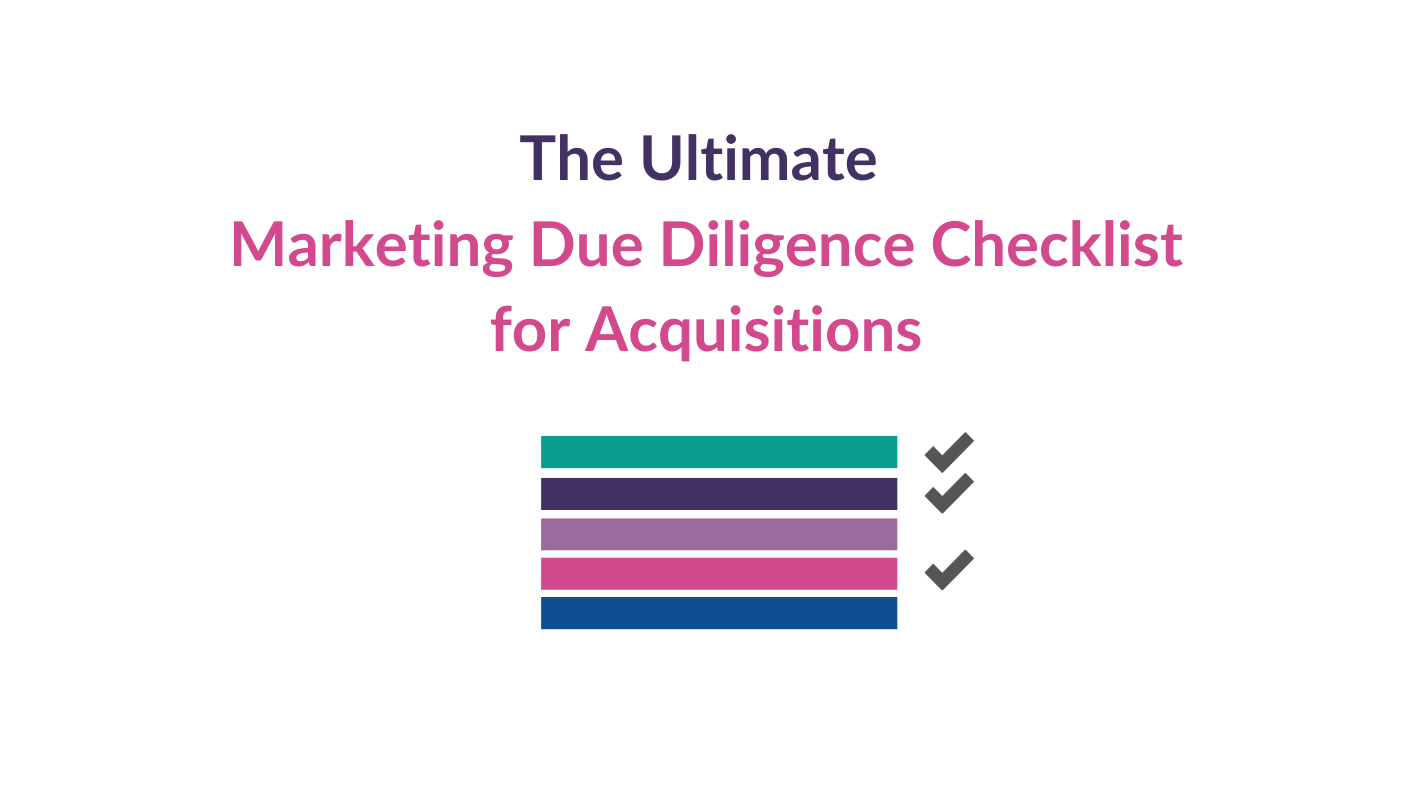
There’s one key area of the PE due diligence process that most firms overlook: marketing.
Assessing a company’s marketing before an acquisition can give you critical insights into whether or not the business has a healthy long-term prognosis.
How big is their TAM?
What is the lifetime value of a customer compared to how much they’re spending to acquire one?
Are the assumptions included in their financial forecast based on historical data?
Answering these questions can help you get a better understanding of the financial health and future prospects of the company you’re considering acquiring, but they’re ones that many firms fail to consider – or don’t realize that marketing can even impact.
Given the cost associated with making a bad purchase, both financially and in terms of the time devoted to an investment, it’s well worth reviewing these questions prior to proceeding with an acquisition.
If you can determine that a company hasn’t set itself up for success before sinking...
Best of 2025: Top 9 Private Equity Podcasts Worth Making Time For

Private equity firms, portfolio companies and investment funds are facing complex challenges. Amid unprecedented economic and geopolitical uncertainty, increased competition and rising stakeholder expectations, firms are under exceptional pressure to deploy capital and deliver returns. With an endless number of possible strategies and techniques, it can be difficult to know what the right approach is for each transaction.
If you’re looking to get advice, stay on top of trends and hear what’s worked for others, podcasts are a helpful resource. But most people in the PE space can’t risk wasting valuable time listening to episodes that aren’t applicable to their situation or don’t have actionable takeaways.
To save you time, we’ve put together a list of 9 private equity podcasts that are packed with valuable insights and are worth taking the time to listen to. Plus, we break down the topics you can expect each podcast to cover so it’s easy to pick which is the best fit for you.
How insightsoftware Built a Marketing Foundation for Growth
 “We were on a hyper-growth trajectory and going through multiple acquisitions a year,” recalls Lacey Ford, former Senior VP of Marketing at insightsoftware, a financial reporting solution provider. After 14 acquisitions in the space of just a couple of years, "what we needed was to build the foundational elements to scale the business as quickly as possible,” Lacey explains.
“We were on a hyper-growth trajectory and going through multiple acquisitions a year,” recalls Lacey Ford, former Senior VP of Marketing at insightsoftware, a financial reporting solution provider. After 14 acquisitions in the space of just a couple of years, "what we needed was to build the foundational elements to scale the business as quickly as possible,” Lacey explains.
From a marketing perspective, there were three fundamental areas insightsoftware needed help developing: getting the team structure right, building the data infrastructure, and scaling the demand gen  engine.
engine.
Read on to hear how Lacey and insightsoftware managed to:
- Pick a consulting option that balanced strategy and implementation
- Scale inbound lead generation to 2x
- Uncover areas of over- and under-investment in marketing
- Build a marketing team with the skills to support their growth
Plus Lacey's advice on how to get the most from a How To SaaS engagement.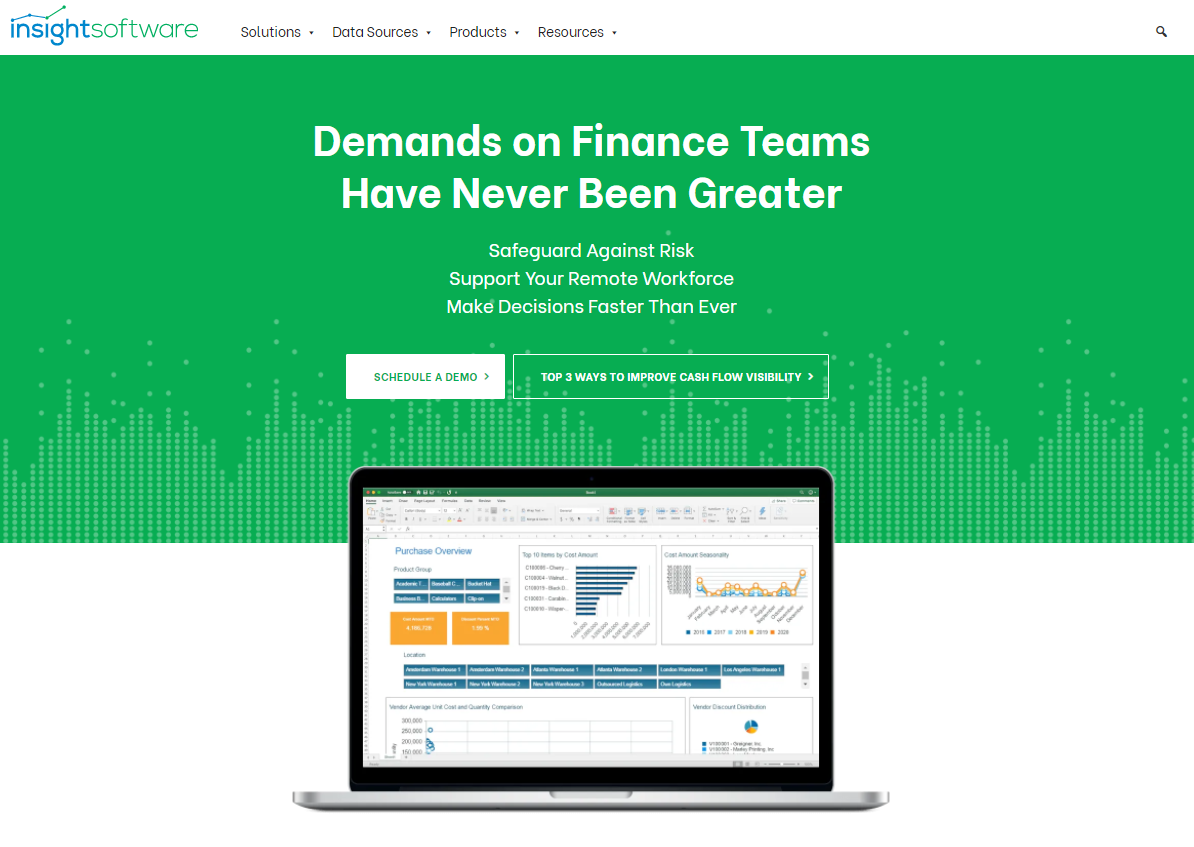
Choosing the Right Consultant
Lacey sta...
How Intelerad Scaled Lead Generation With How To SaaS
 Mike Lipps, CEO at Intelerad, has been working with private equity-backed companies for years, so he understands what it takes to rapidly scale small, founder-led organizations. “Functions like demand generation and brand building need to become more process-driven instead of individual heroic catches,” Mike explains. So when Mike and private equity investors Hg came to Intelerad in 2020, the demand generation process was one of the areas they looked at first.
Mike Lipps, CEO at Intelerad, has been working with private equity-backed companies for years, so he understands what it takes to rapidly scale small, founder-led organizations. “Functions like demand generation and brand building need to become more process-driven instead of individual heroic catches,” Mike explains. So when Mike and private equity investors Hg came to Intelerad in 2020, the demand generation process was one of the areas they looked at first.
Intelerad’s platform was clearly creating value for customers:  They had sky-high customer satisfaction ratings, including net promoter scores of 55+. The company was achieving consistent double-digital organic growth based on the quality of the product and word of mouth, but Intelerad wasn't as well-known as its customer success deserved.
They had sky-high customer satisfaction ratings, including net promoter scores of 55+. The company was achieving consistent double-digital organic growth based on the quality of the product and word of mouth, but Intelerad wasn't as well-known as its customer success deserved.
Intelerad's demand generation was primarily event-driven, boiling down to one or two key events that drove 85%+ of the pipeline for the year. Relying heavily on a single demand gen channe...
CMO-CFO Alignment in Portfolio Companies: Why It Matters, and How To Achieve It

When you bring on new portfolio companies, defining titles, setting expectations and clearly assigning responsibilities in the company is usually among the first things you do. This should include identifying and optimizing areas of alignment between the leaders in the company. But, too often, this gets pushed to the back burner because there doesn’t seem to be a direct connection to the investment thesis or because investors are cautious of interfering with the company’s internal dynamics.
However, without alignment between function area leaders, the company could be:
- Missing out on budget efficiencies
- Spending dozens of hours on overlapping work
- Losing potential customers in the cracks between departments
- Pulling the business in multiple different directions
You can’t assume the executive team will be aligned just because they’re in the same office. These relationships need to be proactively managed, with clear communication requirements and goals that make sense for both ...
PQLs: The Metric Low-Touch Models Need To Improve Sales Efficiency
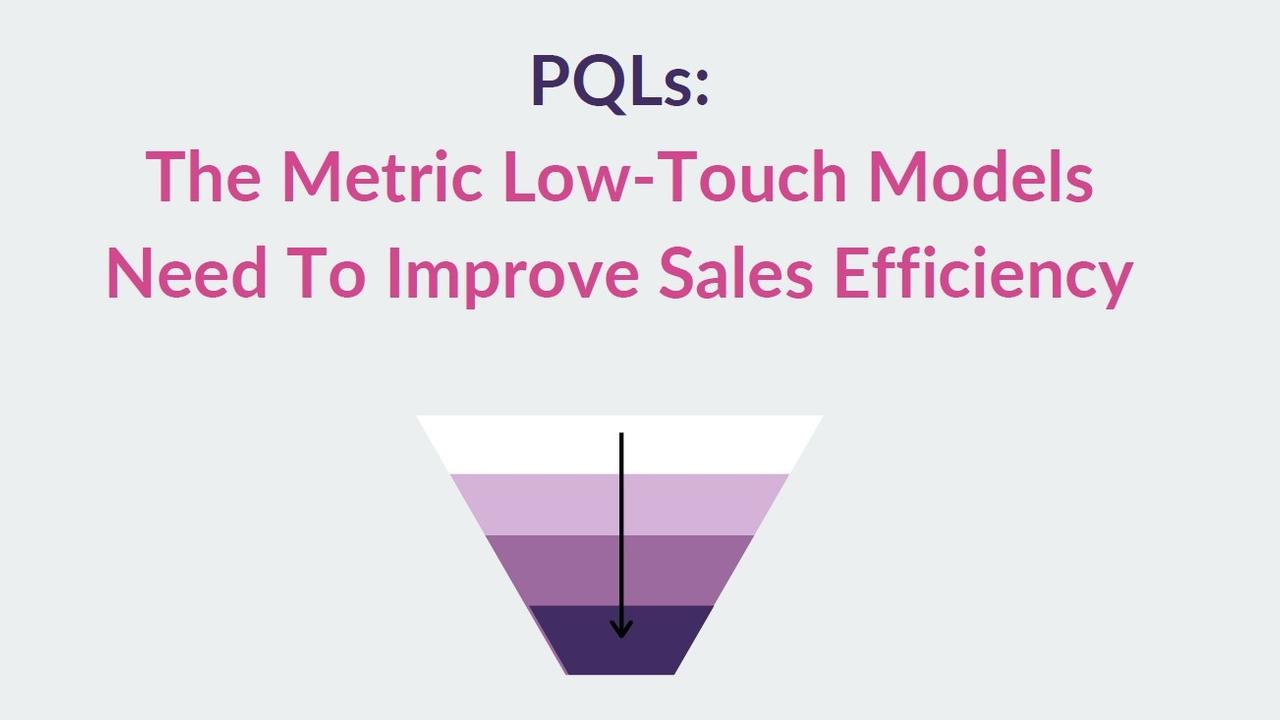
Improving sales efficiency is one of the most common growth levers that feature in PE investment theses. There is huge potential for growth here if you improve conversion rates throughout your sales funnel. However, you can’t improve sales efficiency if you don’t have data on how prospects are moving through the pipeline towards closed-won.
In high-touch sales models, getting data on pipeline status is as easy as shooting an email to someone on your sales team. But in companies with low-touch models that have small or nonexistent sales teams, this can be more complex. How do you know if a lead is moving through the pipeline if you don’t have a salesperson to collect that feedback?
In a low-touch, ‘try before you buy’ SaaS model (for example using free trials or freemium plans) you’re likely dealing with small deal sizes and short sales cycles. There are thousands of people who want to try out your product: The challenge is converting these users into paying customers.
The risk here...
How to Hire Marketing Leaders for PE-Backed Companies

Whether you’re filling gaps in the current marketing strategy, growing the marketing function, or restructuring the team to merge products, hiring new marketing leaders is a common step after an acquisition.
Without the right leaders, Marketing won’t have the management and expertise it needs to scale demand generation, improve nurture, and support Sales. But finding marketing leaders that suit the company, its objectives, and your ideal roadmap can be a challenge.
The right marketing leaders will accelerate your growth; the wrong marketing leaders will keep you stagnating at status quo, or make rash decisions that could damage your brand. If you hire a CMO who isn’t a good fit for your business, the best-case scenario is several months of slow progress on your growth levers, money wasted on initiatives that go nowhere, and the expense and hassle of hiring a replacement within a year.
For PE firms, that kind of outcome is disastrous. With a limited time to grow the company’s revenu...
How to Get Better Marketing Presentations at Board Meetings (+ Free Template)
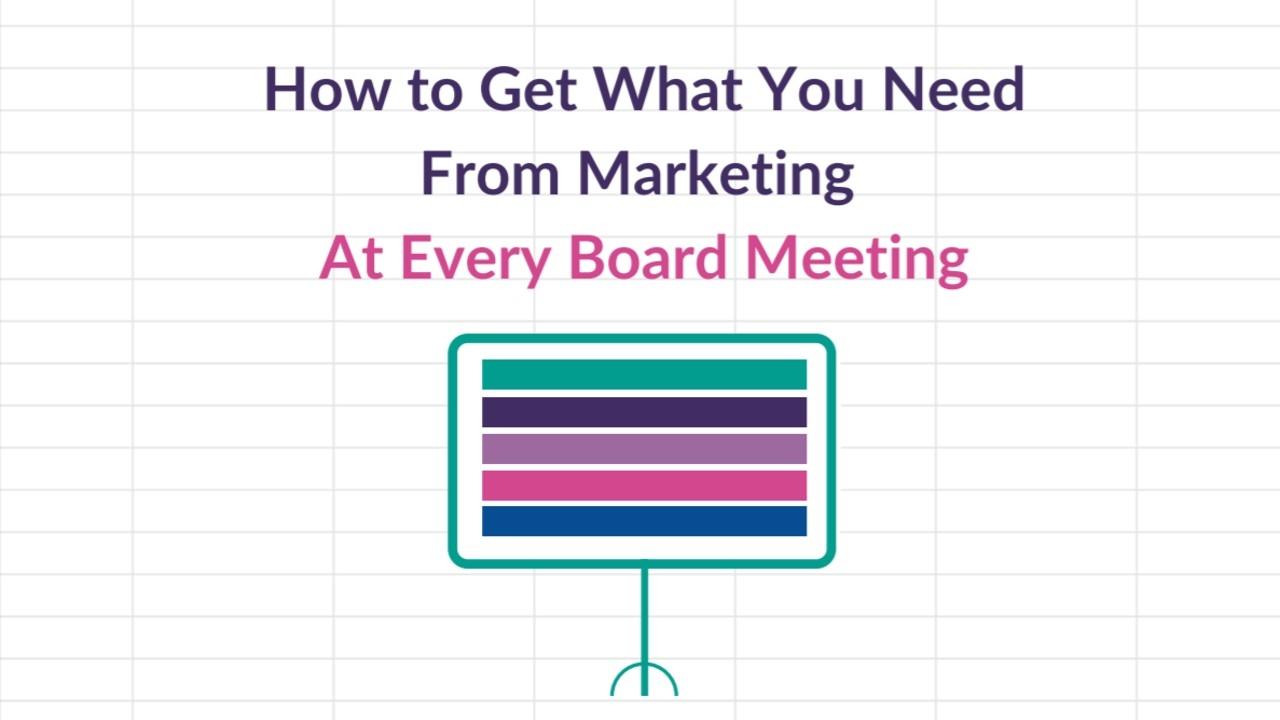
Portfolio companies often believe that their investors only care about EBITDA and, therefore, that they’ll refuse to invest more into an initiative. If you’re a PE investor, you’ll know that’s far from the truth.
After an acquisition, aligning the management team and the board around core initiatives as quickly and efficiently as possible is the number one priority for both portfolio companies and the PE firm. Scaling Marketing is often at the center of this, and most PE firms are keen to give Marketing budget to grow—if Marketing can prove they’ll deploy that additional budget responsibly.
Too often, Marketing walks into the boardroom and asks for another $1 million to supplement their budget, without data to back up their request and without explaining how these projects support the key investment thesis growth levers.
Do you know where and how Marketing would be using the extra budget, and what their projected growth metrics are? Does Marketing even know this?
Without the sup...
The Data Framework You Need to Scale SaaS Marketing (+ Free Template)
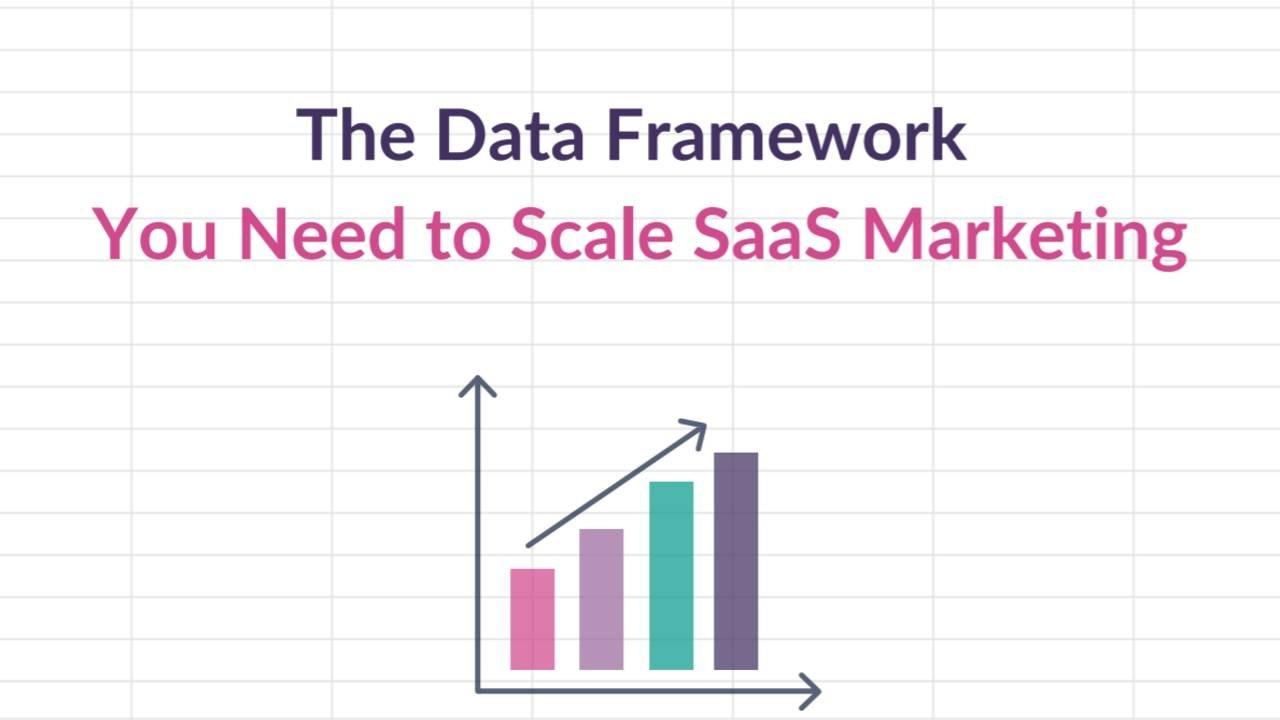
When we’re brought in by a private equity firm to help a particular investment, the portfolio company’s immediate expectation is that we will ramp up Marketing priorities like demand gen and content right away.
Our response is always to slam on the brakes.
Scaling is always the goal, but doing so without the right data framework in place is equivalent to setting your marketing budget on fire. Scaling Marketing isn’t like flipping a switch: It’s about building an engine that is predictable so that we can invest more dollars with confidence as time goes on.
This requires data organization. Without data, you’re pursuing complex initiatives in the dark. You don’t know where to invest or how to track success on those investments. You’re playing Pin the Tail on the Donkey, and maybe you guess right and invest in the right space, but maybe you don’t.
To avoid costly misjudgments, you need to build a marketing data framework that gives you hard evidence of which campaigns are working and...
3 Questions to Cover in Your Marketing Due Diligence Period
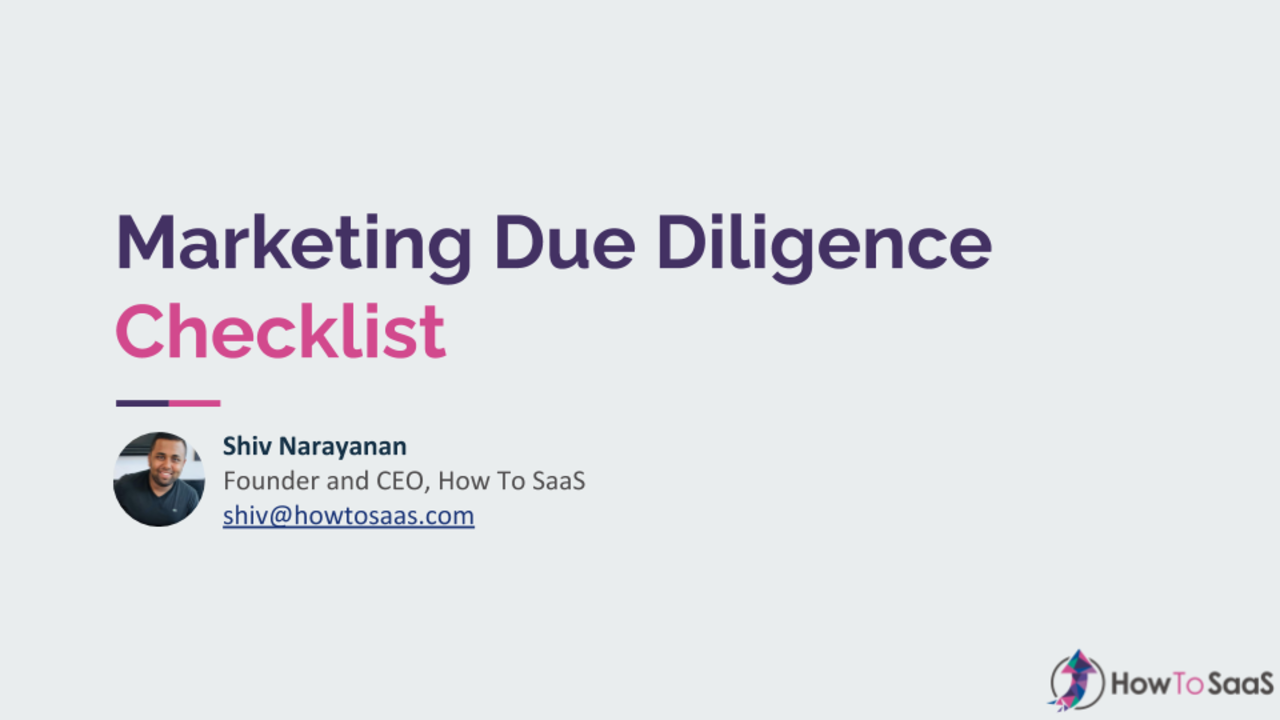
One of the things we see when companies are acquired is that the acquiring company will do all kinds of due diligence. For most companies, that includes technical, financial, and legal due diligence, as well as an assessment of the market and the pipeline. But one area that we see being consistently overlooked is marketing due diligence.
There is plenty of data, information, and opportunities hidden within the marketing side of every business that aren't analyzed before an acquisition. With all the other kinds of due diligence happening during the LOI-to-close stages, marketing due diligence often isn’t prioritized.
In this blog post, we’re going to show the types of insights that can be uncovered, and the value they can help you capture, and even give you a step-by-step checklist to follow. We’ll cover:
- Why marketing due diligence is critical
- Three marketing questions you need to answer in the due diligence period



